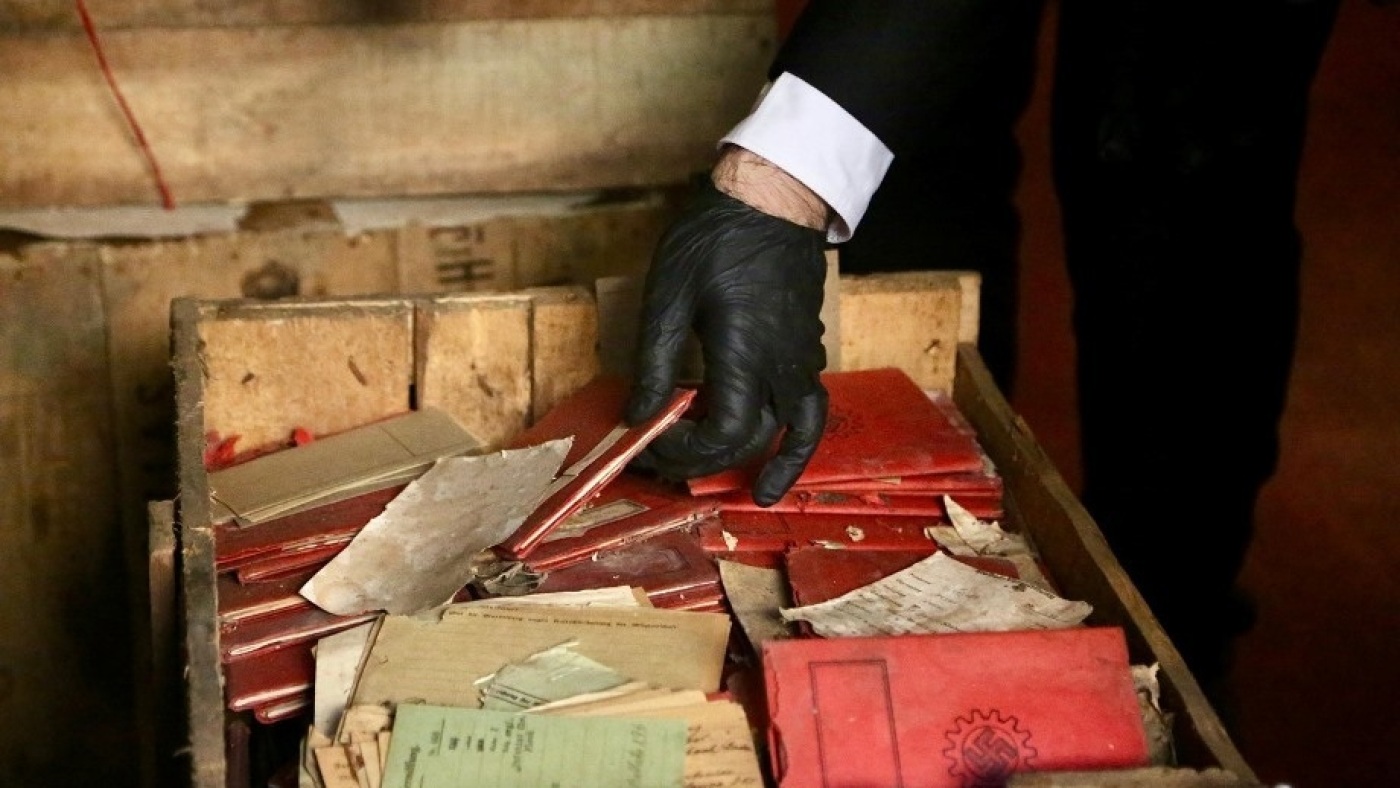The Discovery of Nazi Documents in Argentina’s Supreme Court
In the quiet, dusty recesses of Argentina’s Supreme Court, an astonishing discovery has unearthed a trove of forgotten history. Over 80 boxes of Nazi documents, dating back to 1941, have been found, sending ripples through the historical and legal communities. This unexpected find not only raises questions about Argentina’s past but also about the enduring legacy of the Nazi regime.
A Serendipitous Find
The discovery of these documents was purely accidental. During a routine cleanup for a museum project, judicial staff stumbled upon the boxes while relocating files. The serendipitous nature of the find adds a layer of intrigue to the story, as it highlights how history can be hidden in plain sight.
The documents were shipped to Argentina from the German embassy in Tokyo aboard the Japanese steamship Nan-a-Maru. This shipment was part of a broader effort by Nazi Germany to disseminate its propaganda and ideology in South America, a region with a significant German immigrant population. The documents had been stored in the basement of the Supreme Court, waiting to be rediscovered.
Unpacking the Past
The contents of the boxes are a diverse mix of propaganda, personal correspondence, and organizational records. Here’s a closer look at what was found:
Propaganda Materials
The boxes contained a wealth of propaganda materials, including posters, literature, and photographs. These items were designed to promote Nazi ideology and were likely used to rally support among German immigrants in Argentina. The propaganda materials offer a glimpse into the methods used by the Nazi regime to spread its message beyond Europe.
Personal Correspondence
Letters and diaries from Nazi party members provide a personal perspective on the activities of the Nazi regime in Argentina. These documents can offer insights into the daily lives of Nazi operatives and their interactions with local communities. They may also reveal the extent of Nazi influence in Argentina and the role of the country in harboring Nazi war criminals.
Organizational Records
Membership cards from various Nazi organizations provide a structural view of the Nazi presence in Argentina. These records can help researchers understand the activities and reach of Nazi groups in the country. They may also provide clues about the individuals involved in these organizations and their roles within the Nazi regime.
Visual Records
Photographs and postcards offer a visual record of Nazi activities and events in Argentina. These images can provide valuable context for the written documents and help researchers piece together a more complete picture of the Nazi presence in the country. The postcards, in particular, may have been used as a means of communication and propaganda, offering a unique perspective on the Nazi regime’s activities.
Argentina’s Nazi Connection
The discovery of these documents has significant implications for Argentina’s historical narrative. The country has long been known as a haven for Nazis fleeing Europe after World War II. This find adds to the growing body of evidence that suggests Argentina played a more active role in supporting the Nazi regime than previously acknowledged.
In 2000, President Fernando de la Rúa officially apologized for Argentina’s role in harboring Nazi war criminals. The discovery of these documents raises questions about the extent of this role and the complicity of Argentine authorities in supporting Nazi activities. The documents may also provide new insights into the activities of key Nazi figures who fled to Argentina, such as Adolf Eichmann and Josef Mengele.
The Supreme Court’s Response
The Supreme Court of Argentina has taken a proactive approach to the discovery. President Horacio Rosatti has ordered a thorough review of the documents, working with local Jewish organizations to ensure a comprehensive and respectful examination. This collaboration is crucial in understanding the historical significance of the documents and their potential impact on current relations between Argentina and the global Jewish community.
The Supreme Court’s decision to involve local Jewish organizations ensures that the review process is transparent and respectful of the sensitivities surrounding the Nazi regime’s atrocities. This approach sets a precedent for how historical discoveries should be handled, emphasizing the importance of collaboration and respect in the examination of sensitive materials.
The Path Forward
The documents are now being carefully examined by experts to determine their historical significance and potential use in legal and historical research. The Supreme Court’s decision to involve local Jewish organizations ensures that the review process is transparent and respectful of the sensitivities surrounding the Nazi regime’s atrocities.
The documents may provide valuable insights into the activities of Nazi organizations in Argentina, the extent of Nazi influence in South America, and the role of Argentina in supporting Nazi war criminals. They may also offer new perspectives on the Holocaust and the global impact of Nazi ideology.
A Call for Further Investigation
The discovery of these Nazi documents in Argentina’s Supreme Court basement is a stark reminder of the enduring legacy of the Nazi regime and the complexities of historical memory. It underscores the importance of continued investigation and transparency in understanding the past, especially in regions with significant ties to the Nazi regime.
As researchers delve deeper into these documents, they may uncover new information that challenges existing narratives and sheds light on the darker chapters of Argentina’s history. This discovery serves as a call to action for historians, legal experts, and the global community to engage in a thorough and respectful examination of these materials, ensuring that the lessons of the past are not forgotten.
The documents found in Argentina’s Supreme Court offer a unique opportunity to deepen our understanding of the Nazi regime’s global reach and the role of Argentina in supporting Nazi activities. As the examination of these documents continues, it is crucial that the process is handled with care, respect, and a commitment to transparency. The lessons of the past must be learned, and the voices of the victims must be heard. This discovery is a reminder of the importance of historical investigation and the enduring impact of the Nazi regime on the world.








